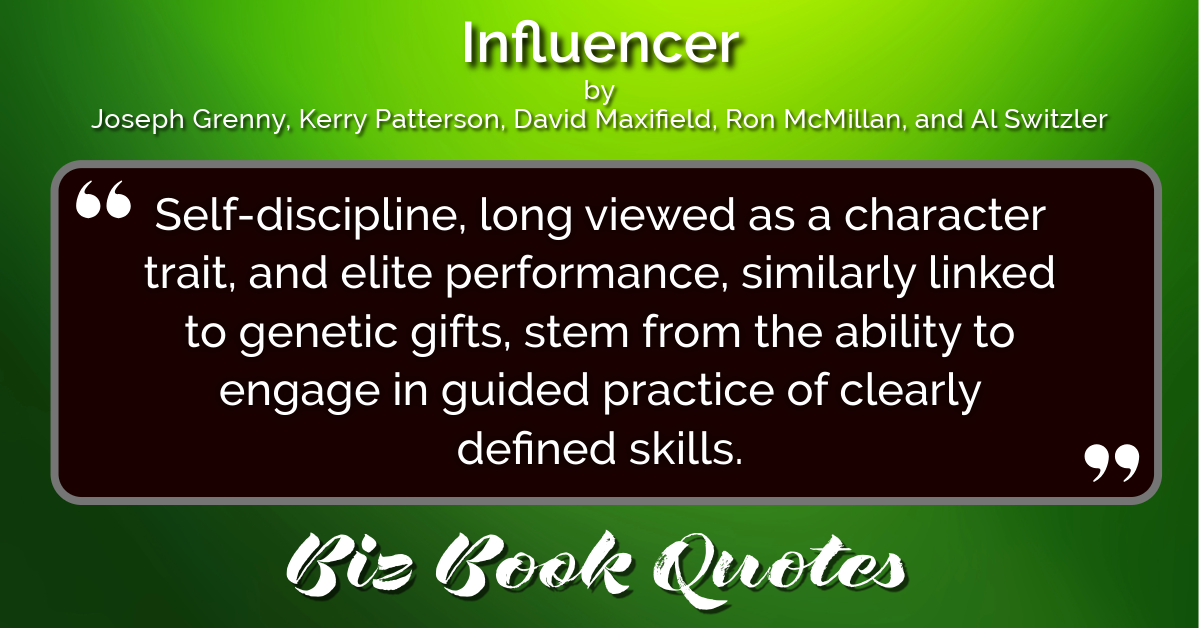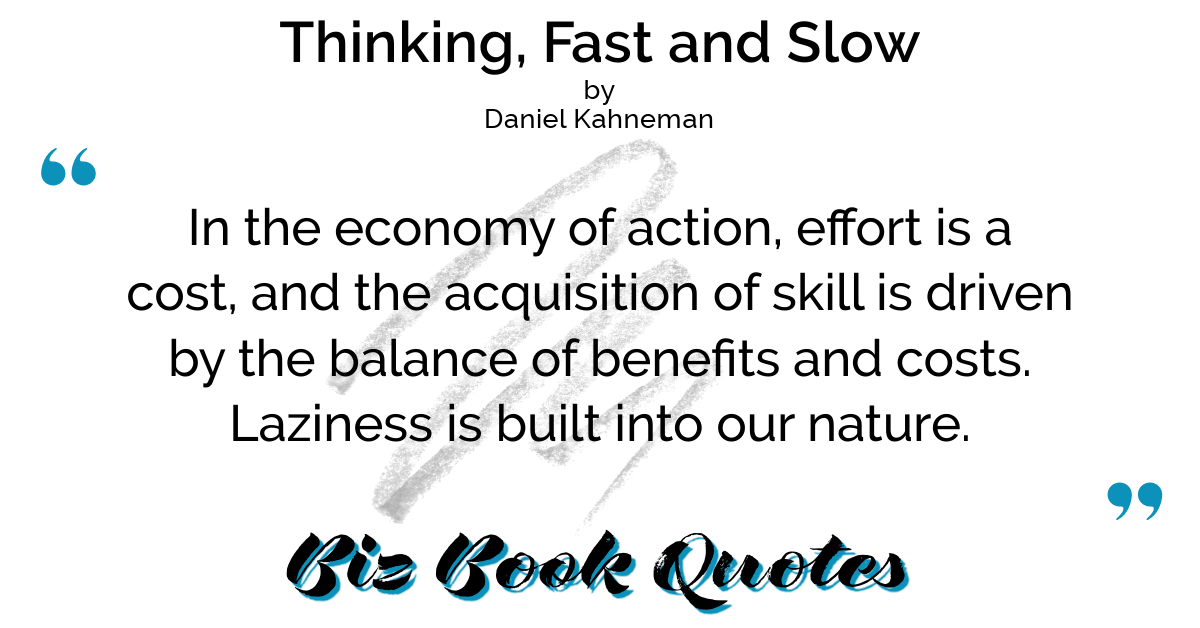 |
Self-discipline, long viewed as a character trait, and elite performance, similarly linked to genetic gifts, stem from the ability to engage in guided practice of clearly defined skills.
|
124 |
 |
As you become more skilled in a task, its demand for energy diminishes.
|
035 |
 |
In the economy of action, effort is a cost, and the acquisition of skill is driven by the balance of benefits and costs. Laziness is built into our nature.
|
035 |
 |
…expertise in a domain is not a single skill but rather a large collection of miniskills.
|
238 |
 |
Expertise is not a single skill; it is a collection of skills, and the same professional may be highly expert in some of the tasks in her domain while remaining a novice in others.
|
241 |
 |
The unrecognized limits of professional skill help explain why experts are often overconfident.
|
242 |
 |
…the financial benefits of self-employment are mediocre: given the same qualifications, people achieve higher average returns by selling their skills to employers than by setting out on their own.
|
257 |
 |
Traveling someplace new improves your processing skills. It helps sharpen the old tacks. It reminds you that no matter who you are, you’ll probably end up coping just fine.
|
267 |
 |
It is never too late to start learning new skills.
|
064 |
 |
Every person on a team knows something that no one else knows. That’s why teams exists: you need more than one person’s set of ideas and skills to solve a problem.
|
111 |